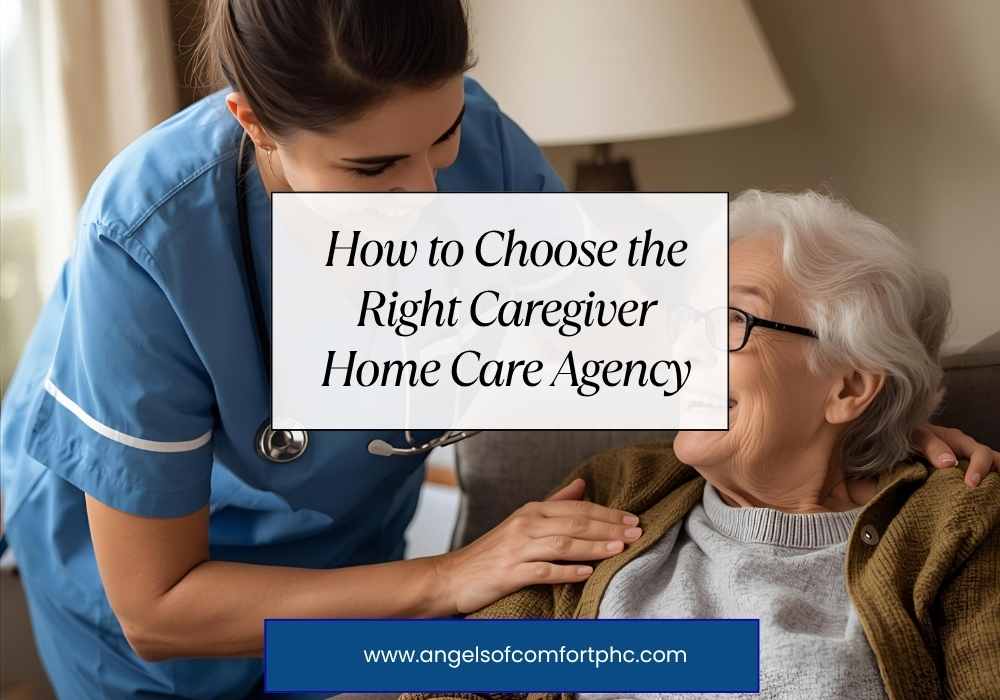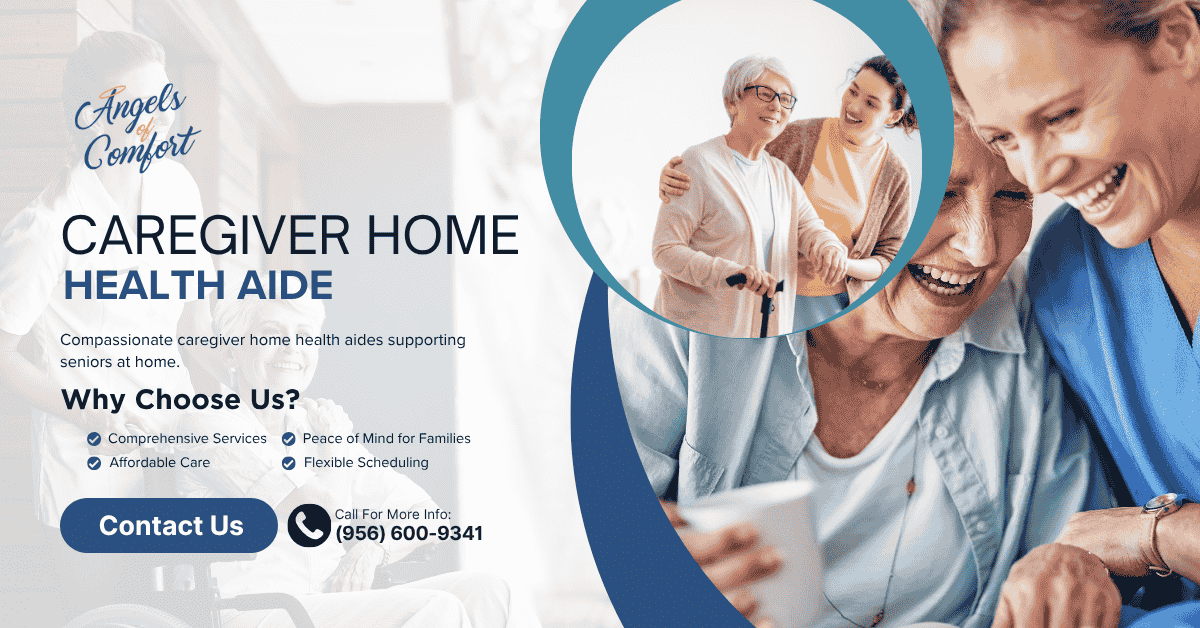Compassion that Starts at Home
Home feels like the safest place for most families, a spot where loved ones can heal, grow older, or just live with dignity. That’s why having a caregiver or home health aide really matters. These folks don’t just show up with medical know-how. They bring warmth, patience, and a personal touch right into your living room. A good home health aide knows how to balance skill with empathy. They help with everyday stuff, keep you moving, and offer real company. Most importantly, they make sure you stay independent and keep your quality of life right where it should be.
What Does a Caregiver Home Health Aide Do?
A home health aide, often called an HHA, plays a crucial role in supporting individuals within the comfort of their own homes. They assist with the essential activities that everyone needs to get through the day, such as helping with bathing, getting dressed, preparing simple meals, keeping the living space clean and organized, and offering gentle reminders to take medications on time. But their job goes far beyond just helping with daily routines. Caregivers provide a foundation of personal and emotional support, offering companionship and a caring presence that can significantly improve a person’s quality of life, especially for those who might otherwise feel isolated or overwhelmed by age or illness.
Home health aides are specially trained to handle responsibilities that require more skill and attention. They are able to monitor vital signs like blood pressure and temperature, making sure any changes in health are quickly noticed and reported. HHAs also follow specific care plans designed by nurses or doctors, ensuring that each client receives the medical attention and rehabilitation support they need without having to leave home. This might include helping with physical therapy exercises, assisting with mobility, or supporting recovery after a hospital stay.
By blending genuine compassion with practical medical knowledge, HHAs and caregivers become the lifeline for many families. Their presence allows people to maintain independence and dignity while staying in a familiar environment, which can be reassuring and promote faster healing. In many ways, these professionals are the backbone of home health care, bridging the gap between medical needs and the comfort of home. Their dedication not only improves the physical well-being of those they care for but also nurtures their emotional health, making life safer, happier, and much more manageable for both clients and their loved ones.
Why In-Home Care Matters More Than Ever
More families are choosing in-home care to help their loved ones age safely and comfortably where they belong — at home. According to the National Institute on Aging, more than 80% of seniors prefer to age in place rather than move to assisted living facilities. And it’s easy to see why.
Home is familiar, comforting, and full of memories. With a dedicated caregiver home health aide, seniors get the help they need without losing the independence they value most.
In-home care offers life-changing benefits, including:
- A familiar environment that nurtures emotional stability
- Lower risk of hospital readmissions
- Personalized care and flexible daily routines
- Stronger family involvement and peace of mind
A compassionate home health aide helps balance safety and independence a combination every family hopes for.
The Heart Behind Great Caregiving
Training matters, but empathy is what truly defines great caregiving. A skilled caregiver or home health aide brings both technical ability and emotional intelligence to every visit.
The best professionals share these core qualities:
- Patience & compassion: Understanding emotional and physical challenges
- Strong communication: Listening carefully and reporting updates clearly
- Reliability: Consistent presence builds trust and security
- Adaptability: Adjusting care to meet changing health or mood needs
- Respect & dignity: Treating every client as an individual, not a checklist
Professional certifications ensure safe and effective care, but genuine kindness turns that care into comfort.
Home Health Aide vs. Nursing Assistant: What’s the Difference?
Both home health aides and nursing assistants help people stay safe, healthy, and comfortable, but their jobs don’t look the same once you dig in.
| Aspect | Home Health Aide (HHA) | Certified Nursing Assistant (CNA) |
|---|---|---|
| Primary Workplace | Private homes or residential settings | Hospitals, nursing homes, or clinics |
| Main Focus | Long-term personal care, companionship, and assistance with daily living | Clinical and procedural support under nurse supervision |
| Care Approach | One-on-one, personalized, relationship-based care | Structured, medical-focused care in a team environment |
| Typical Duties | State-approved home health aide training may include basic health monitoring | Vital signs monitoring, assisting with medical procedures, moving patients, documenting clinical data |
| Training & Certification | State certification as a nursing assistant often requires formal coursework and exams | State certification as a nursing assistant; often requires formal coursework and exams |
| Level of Medical Involvement | Basic health observation and non-medical assistance | Direct clinical support within healthcare facilities |
| Goal of Care | Promote independence, comfort, and dignity at home | Support recovery and daily medical needs in healthcare settings |
Bottom line? Home health aides help people live comfortably and independently at home, while nursing assistants jump in with hands-on medical support in hospitals or care facilities. Each role matters, just in different ways.
Benefits of Hiring a Professional Caregiver Health Aides Service
Choosing professional care at home provides measurable and emotional benefits:
- Independence: Loved ones remain in their familiar environment.
- Safety: Trained aides prevent falls, manage medication schedules, and monitor health changes.
- Affordability: Home care often costs less than long-term facilities or hospitals.
- Emotional Stability: Clients enjoy companionship and reassurance every day.
- Peace of Mind: Families know trained professionals are ensuring comfort and safety.
Home health aides deliver more than support, they restore confidence and well-being.
How to Choose the Right Caregiver or Home Care Agency

Finding the ideal caregiver requires balancing professionalism, empathy, and compatibility.
Here’s what to look for:
- Verified certification and background checks
- Positive references from previous families
- Clear communication and flexible scheduling
- A personalized care plan tailored to specific needs
- Transparent pricing and emergency procedures
Before hiring, ask:
- How are caregivers trained and supervised?
- How is progress or concern communicated to families?
- Can the agency accommodate specialized conditions like dementia or mobility issues?
A good caregiver isn’t just qualified — they feel like part of the family.
The Emotional Impact of In-Home Care
Nothing heals quite like a real human connection. When seniors sit down to swap stories, play a game of cards, or stroll around the block with their caregiver, it’s not just about getting help—it’s about finding joy again. Companionship lifts spirits, calms nerves, and even sharpens the mind. Good caregivers do more than show up; they bring warmth, trust, and a sense of belonging into the home. Honestly, that emotional bond ends up making the biggest difference of all.
The Future of Caregiver Home Health Services
Caregiving’s changing fast. Now, it’s a mix of real human kindness and some pretty clever tech. Home health aides aren’t just checking in—they’re using apps to keep schedules straight, wearable trackers to watch health, and video calls to keep families in the loop. AI steps in to ensure meds are dispensed on time, and nurses can keep an eye on patients from miles away through telehealth.
But let’s be real: technology can’t replace the warmth and comfort of a caring person. It just makes their job a little easier. And as more people need help at home, this job is taking off—demand for home health aides is set to jump by more than 20% this decade. If you’re looking for work that matters, this is about as rewarding as it gets.
Why Families Choose Angels of Comfort PHC
At Angels of Comfort PHC, we start with one thing understanding. Our certified home health aides aren’t just professionals; they’re caring people who show up for seniors in San Antonio, Laredo, the Rio Grande Valley, and Corpus Christi.
Here’s what you can count on:
- Caregivers who are fully screened and trained
- Flexible care, around the clock, whenever you need it
- Clear care plans and real-time updates—no guessing, no surprises
- Support that covers both the heart and the body, every single visit
We’re not just about providing care. We’re here to give families confidence, comfort, and a real connection. People across Texas trust us because we treat every home like it’s our own—with honesty, kindness, and respect.
FAQs About Caregiver Home Health Aides
What does a caregiver home health aide do?
They help with everyday things like getting dressed, bathing, and making meals. They’re also there for support physically and emotionally, so people can stay safe and live on their own.
How is a caregiver different from a nurse?
Nurses handle medical tasks—giving treatments, checking vital signs, that kind of thing. Caregiver aides focus on personal care, ensuring people’s safety, and providing companionship.
Are caregiver home health aides certified?
In most states, yes. They have to complete training and get certified before they can start working, so you know they’re qualified.
Can home health aides handle dementia care?
Yes, they can. Many have extra training to support people with memory problems, using routines and other methods to keep everything safe and comfortable.
How much does home health aide service cost?
It varies depending on your location, but in general, home care is less expensive than moving into a nursing home full-time.
Wrapping Up: Real Care, Real Comfort, Right at Home
A home health aide from Angels of Comfort does more than just help out—they show up with real warmth and hope, making each day a little brighter for your loved one. With someone experienced and kind by their side, your family member gets to stay right where they feel most comfortable: home. They’re safe, at ease, and even on rough days, there’s still room for joy.
From help with daily routines to encouragement and attentive care, Angels of Comfort PHC makes sure people get to age or recover with real dignity. Honestly, nothing beats the sense of belonging and respect that comes from being cared for in your own space.
Want to bring true comfort home? Reach out to Angels of Comfort PHC today and see how compassionate, professional care can make each day feel safer, happier, and more dignified.

